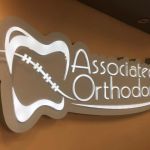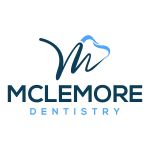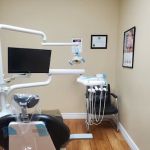Debunking the Most Common Dental Myths You Should Stop Believing
1. "You Only Need to See a Dentist When You Have a Problem"
When I was younger, I thought that the only time I needed to visit a dentist was when something was wrong, like if I had a toothache or noticed a cavity. I was under the impression that as long as my teeth weren’t causing me any discomfort, everything was fine. Turns out, I was wrong. Regular dental visits are essential for maintaining good oral health even if you aren’t experiencing any symptoms.
Preventive care is one of the key reasons why regular dental check-ups are so important. Dentists can spot potential issues early, such as gum disease, cavities, or even signs of oral cancer, long before they cause pain or discomfort. I learned this the hard way when a small cavity, that could’ve been easily treated during a routine check-up, turned into a more serious problem that required a root canal. If I had just gone to my dentist for a regular cleaning and check-up, I might have avoided that extra pain and expense.
2. "Whitening Products Will Damage Your Teeth"
Another myth I used to believe was that teeth whitening products were damaging to enamel. I remember seeing those brightening strips on TV and thinking, "There’s no way this can be good for my teeth." But after speaking with my dentist and doing some research, I discovered that, when used correctly, many whitening products are completely safe for your teeth.
Of course, overuse of certain products or excessive whitening can cause some issues, like tooth sensitivity or irritation of the gums, but if you follow the instructions and use reputable products, whitening treatments are usually quite safe. In fact, professional whitening options offered by dentists are often the most effective and safest ways to brighten your smile. I’ve even tried a few treatments myself and saw great results without any damage to my enamel.
3. "Sugar Is the Only Cause of Cavities"
I’ve always heard that sugar is the number one culprit behind cavities, so I used to think that if I just avoided sugary foods, I wouldn’t have to worry about tooth decay. While sugar definitely plays a significant role in the development of cavities, it’s not the only factor that contributes to oral health problems.
Dental health is influenced by many factors, including how often you eat, the types of food you eat, and how well you care for your teeth. For example, consuming acidic foods or drinks, like soda or citrus fruits, can erode enamel over time and increase the risk of cavities. Poor oral hygiene, like not brushing your teeth properly or failing to floss, also contributes to plaque buildup and tooth decay.
It wasn’t until I started paying more attention to my overall dental care and not just avoiding sugar that I saw a noticeable improvement in my oral health. So while sugar is important to monitor, it’s only part of the equation when it comes to keeping your teeth healthy.
4. "Brushing Harder Will Make Your Teeth Cleaner"
When I first learned to brush my teeth, I thought the harder I brushed, the cleaner my teeth would be. I would press down with all my strength, thinking it would make my teeth sparkle. However, over time, I noticed that my gums started to recede and my teeth became more sensitive. I learned that brushing too hard can actually cause harm to your teeth and gums.
Brushing your teeth with excessive force can wear down the enamel, irritate the gums, and even lead to gum recession. Instead of brushing aggressively, it’s far more effective to use a soft-bristled toothbrush and gentle, circular motions. Brushing for at least two minutes, twice a day, with the proper technique is much more important than how hard you brush.
5. "If Your Gums Bleed, You Should Stop Brushing"
This is one dental myth I found out the hard way. I used to think that if my gums bled when I brushed, it was a sign that I was brushing too hard or doing something wrong. In reality, bleeding gums can be an indication of gum disease or gingivitis, which is caused by plaque buildup along the gum line.
While it’s important to be gentle when brushing, stopping altogether can actually make the problem worse. Brushing and flossing regularly help remove plaque, which is the root cause of gum disease. If you experience bleeding gums, it’s important to see your dentist to determine the underlying cause. With proper treatment, such as professional cleanings and improved home care, bleeding gums can often be reversed.
6. "Children’s Teeth Don’t Need to Be Taken Care of Until They’re Permanent"
As a parent, I used to think that children’s baby teeth weren’t as important as permanent teeth. After all, they fall out eventually, right? But I quickly learned that this couldn’t be further from the truth. Baby teeth are essential for a child’s oral development and overall health.
Not only do baby teeth help children eat and speak properly, but they also play a critical role in holding space for the adult teeth that will eventually replace them. If baby teeth are neglected and decay, it can affect the development of the adult teeth and lead to more serious dental issues later on. It’s crucial to start practicing good oral hygiene with children as soon as their first teeth appear and to schedule regular dental check-ups as they grow.
7. "Dental Work Is Always Painful"
Growing up, I was always terrified of going to the dentist because I thought any procedure would be unbearably painful. I would even hear stories from friends and family about their horrible dental experiences. But as I grew older and visited the dentist more regularly, I realized that most modern dental procedures are far less painful than I had imagined.
Thanks to advancements in dental technology and anesthesia, procedures that once caused a lot of discomfort can now be done with minimal pain. Even routine procedures like fillings, cleanings, and root canals are now performed with a high level of comfort and efficiency. In fact, many people report feeling little to no discomfort during these procedures. It’s important to speak with your dentist about any concerns before a procedure, as they can offer solutions to ensure a comfortable experience.
8. "Mouthwash Is All You Need for Clean Teeth"
For a long time, I thought that mouthwash could replace brushing and flossing. After all, it makes your mouth feel fresh and clean, right? But after speaking with my dentist, I learned that mouthwash should only be used as a supplement to brushing and flossing, not a replacement.
While mouthwash can help reduce bacteria and freshen breath, it can’t remove plaque or food particles from between your teeth like brushing and flossing can. It’s essential to brush at least twice a day and floss daily to maintain optimal oral health. Mouthwash is great for added protection and freshness, but it’s not a substitute for proper brushing and flossing.
When I switched to a more comprehensive oral care routine that included regular brushing, flossing, and mouthwash, I noticed a significant improvement in my dental health and overall breath freshness. My dentist was right—there’s no shortcut to good oral hygiene!
We’ve all heard these myths at some point, and I admit that I fell for many of them myself. However, as I’ve learned more about dental care and spoken with my dentist, I’ve come to realize that taking care of my teeth isn’t about following myths or quick fixes. It’s about developing healthy habits, visiting the dentist regularly, and using the right products for my oral health.
For anyone looking to improve their oral health, I highly recommend visiting a trusted dental clinic. At Dentistry Toothtruth, we offer comprehensive dental services to help you maintain a healthy, beautiful smile. Don’t let dental myths stand in your way—trust the experts and take control of your oral health today!







 Scott Soderquist, DDS, MS0.0 (0 review)
Scott Soderquist, DDS, MS0.0 (0 review) Willamette Dental Group - Tacoma3.0 (203 review)
Willamette Dental Group - Tacoma3.0 (203 review) Kevin Walker DDS and Mae Lee Springer DDS5.0 (125 review)
Kevin Walker DDS and Mae Lee Springer DDS5.0 (125 review) McLemore Dentistry4.0 (330 review)
McLemore Dentistry4.0 (330 review) Reynolds Family Dentistry of Richmond4.0 (19 review)
Reynolds Family Dentistry of Richmond4.0 (19 review) Densley Dental4.0 (260 review)
Densley Dental4.0 (260 review) The Importance of Oral Health Education During Pregnancy for a Healthy Pregnancy
The Importance of Oral Health Education During Pregnancy for a Healthy Pregnancy Best Tips for Brushing Your Teeth Properly for Healthy Gums: Essential Techniques for Oral Health
Best Tips for Brushing Your Teeth Properly for Healthy Gums: Essential Techniques for Oral Health Why Skipping Dental Checkups Can Lead to Bigger Oral Health Problems
Why Skipping Dental Checkups Can Lead to Bigger Oral Health Problems Advantages of Porcelain Dental Restorations
Advantages of Porcelain Dental Restorations How Can Diabetes Cause Tooth and Gum Problems? Preventing and Managing Oral Health Issues
How Can Diabetes Cause Tooth and Gum Problems? Preventing and Managing Oral Health Issues Healthy Habits for Promoting Good Oral Health and Hygiene: Tips for a Healthy Smile
Healthy Habits for Promoting Good Oral Health and Hygiene: Tips for a Healthy Smile